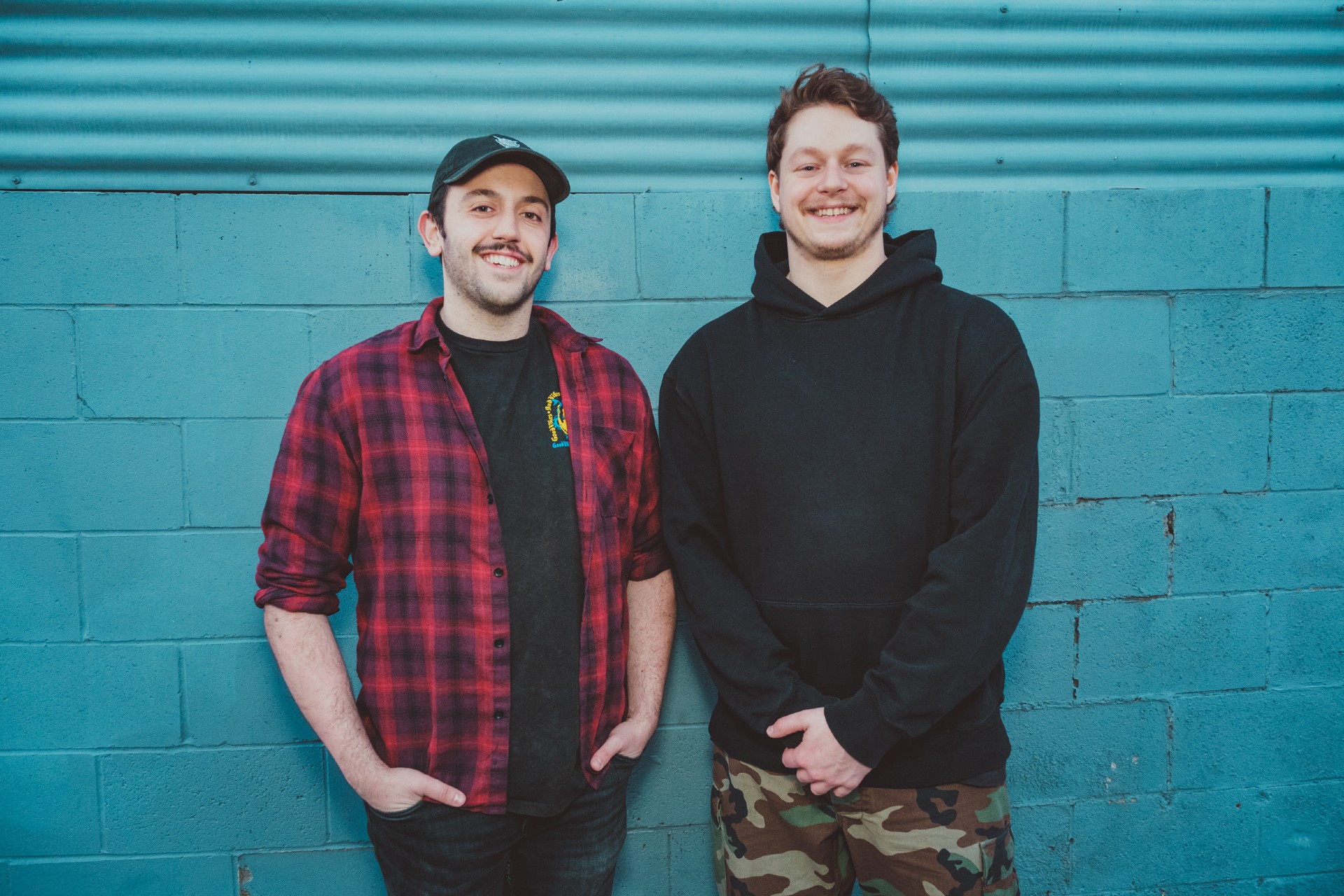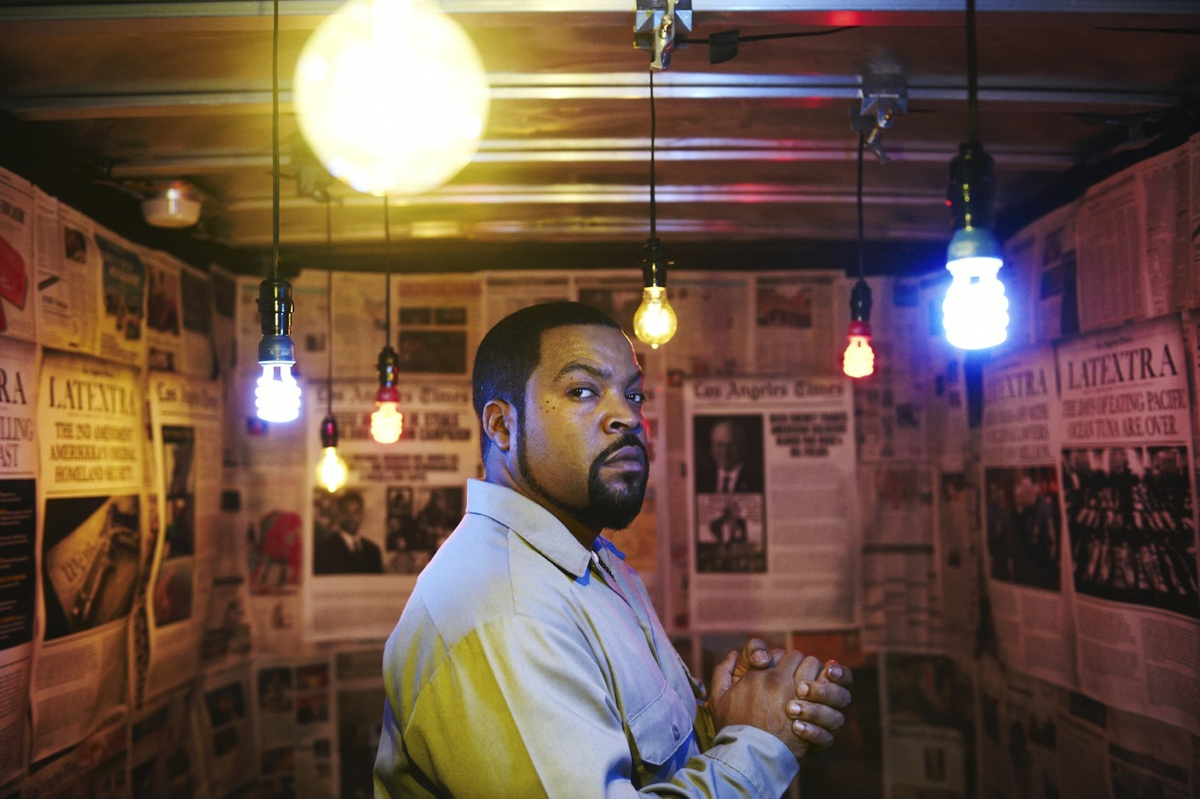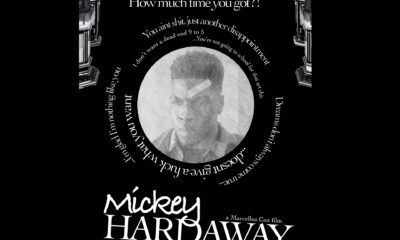Hardcore/Punk
Vox Populi: Napoleon’s Tom Whyte and Jon Elmaleh Discuss Homelessness and First Nations Issues
Alt-punk band Napoleon’s Tom Whyte and Jon Elmaleh join us today in a Vox Populi interview to discuss homelessness and First Nations issues.

Bigger, better, and heavier sums up pretty well where Napoleon currently finds themselves. The Toronto band recently released their new single (and accompanying music video), “Heartless.” The song is exciting because it is a stronger, heavier, and even faster sound for Napoleon. In their six or so years of existence, they have come to be known as a post-hardcore or alternative punk act. But they have tried hard to diversify their sound, with “Heartless” shifting slightly away from punk and more towards hard rock. You can also hear it in lead singer Jon Elmaleh’s vocals and lyrics, with the song a particularly harsh criticism towards organized religions. The singer recently indicated that this type of song is a sign of what’s to come for the band on their brand new EP Dear God, due out May 31st.
Since their formation in early 2018, Napoleon has carved out a nice niche for themselves within the Canadian rock scene. They have received ringing endorsements from mainstream acts such as Silverstein and Cancer Bats. In fact, their relationship with Cancer Bats has been so positive that former Cancer Bats guitarist Scott Middleton has become their full-time manager. Middleton began managing the band in 2020. Since that time, he has produced every Napoleon release. They have also collaborated with Shane Told of Silverstein and Luke Bentham of The Dirty Nil.
Napoleon guitarist Tom Whyte and singer Jon Elmaleh join us today for a new edition of Vox Populi. They join us for a more serious-minded conversation about homelessness, First Nations, how they have become interested in helping these causes, what the public can do to assist, and more.
No matter what your political or ethical outlook is, there are issues and topics that we are all passionate about. Some examples are climate change, human rights, poverty, military conflicts, prejudice, and economic disparity. With this in mind, what’s the issue or topic that you are most passionate about?
Tom Whyte: “The social issue that I am most passionate about is homelessness, and more specifically, the treatment of people that are homeless. I grew up in a small town where this wasn’t much of an issue, but from the first time I came down to Toronto as a kid and saw other human beings sleeping outside, it really got me. Ever since then, I have learned more and more about the issue, the causes and how it could happen to any of us if placed in an unfortunate circumstance.”
Jon Elmaleh: “This is a tough one for me to answer. There are a lot of social issues that I feel strongly about, however, if I had to pinpoint one as being the one that is most upsetting to me it would be the racial discrimination against the First Nations. Fortunately, I feel the general awareness in Canada has increased over the last few years. However, the conversation tends to talk about the issue in the past tense, when it very much is not. It is still a present issue that has no signs of changing in the future.”
Why is this issue so important to you?
Whyte: “This issue is extremely important to me because it is something we see as a society every single day and choose to ignore. The fact that these are people just like you and me who have ended up in a bad place, but the world decides to judge them instead of helping, is deeply upsetting. I truly believe every person deserves to have a home and at the bare minimum, a warm place to sleep and basic respect from their neighbours.”
Elmaleh: “I studied Political Science in university, and I took one course that was about colonialism in Canada, and while before that I was aware that there was a bit of a dark past, I had no idea just how bad it was. I remember in the introduction class hearing the professor say that in 1920, the Department of Indian Affairs came out and publicly said that, ‘(their) objective is to continue (the cultural genocide) until there is not a single Indian in Canada that has not been absorbed into the body politic and there is no Indian question.’
“We learned all these horrible stories from back in the residential school days amongst other things and I just kept having this question of, ‘Why do I not know about this already?’ To further this point, I also spent a lot of time learning about how to this very day the Indigenous people are still facing issues of racism, poverty, addiction, high suicide rates, unemployment, etc. The affects of the cultural genocide from the early 1900s still lives on. I am firm believer that everyone should be respected for who they are, regardless of their skin colour, sexual orientation, religious beliefs, etc. And it saddens me that the first nations are often overlooked when it comes to that sentiment.”
What do you see as the biggest contributing factors to the issue?
Whyte: “Canada is experiencing a housing and affordability crisis. The fact of the situation is that so many people are living paycheck to paycheck and without a support system are one missed pay away from experiencing homelessness. We also lack funding for social services and need to create more, safe places to live then the overcrowded, unsafe shelters currently offered.”
Elmaleh: “I kind of said it already, but I feel like the awareness is just not there. The average Canadian knows very little about this, or thinks its just an issue of the past. Part of the issue here is the current Canadian government does admittedly make an effort to make reparations for the past. However, fixing a historic wrong of that magnitude is not something that can be fixed easily. Especially not when there are still over 100 First Nation communities across the country without access to clean water, proper shelter, reliable electricity, healthcare, etc.”
If you could have everyone in the world hear you for one minute, what would you tell them about these topics?
Whyte: “We need to be more kind to one another, full stop. It sounds cliche, but put yourself in these peoples shoes and imagine how you would feel being spit on every day. The stigma around the homeless population all being alcoholics or drug addicts that should just ‘get a job’ is so outdated and insane to me. Everyone needs to do their part to tackle this issue. I understand that everyone might not be in a place to give out money, but anything from buying a coffee, food, supplies, or to just simply stopping and having a conversation goes a long way. We need to do better.”
Elmaleh: “As Canadians we need to hold our government accountable. I don’t want to discount the efforts they’ve made but it clearly is not enough. Where is the government intervention when First Nations people are dying due to a lack of healthcare which is available to the rest of Canada? Where is the government intervention when these people need water? Why do the first nations people have to live in third-world conditions and watch from the sidelines as the rest of the Canadian population thrives?”
What are some actions that readers can take right now to contribute to tackling this issue?
Whyte: “Go ask someone living on the streets what you can do to make their day better. Rather, it’s buying them a sandwich, sitting down and learning their story, or giving whatever money you can spare.”
Elmaleh: “Learn. All this information is easily accessible online. It is important to know your country’s history, especially one that is yet to be made right.”
If you could change one person’s mind completely and irrevocably in order to help solve the issue, who would it be? Why?
Whyte: “It wouldn’t be one person’s mind per say, it would be the average middle class person. It is always people who are well off and have stability that have the most to say on the topic. Helping them to realize their words are judgmental and that the homeless population needs to be treated like human beings is always the end goal.”
Elmaleh: “In 2009, Stephen Harper said to all Canadians that Canada has no history of colonialism. Presumably this is either something he has fooled himself into believing or he is just straight up lying to save face. Either way, this kind of narrative that he is creating is incredibly harmful. It allows the average Canadian an excuse to completely overlook the issue at hand”
If left unchecked, where do you see these issues heading in the years to come?
Whyte: “Without a significant change in how the government and us as a society view the topic, we are going to see more and more people sleeping in the streets. Even over the last five years I’ve personally noticed a huge spike in cities across Canada (Toronto, Ottawa, Oshawa, etc). We are in drastic need of funding, social services, and more affordability of basic necessities like groceries and housing.”
Elmaleh: “I fear that without more drastic government intervention the quality of life for the First Nations will only get worse, suicide rates will increase, and the genocide that started in the early 1900s will continue to take it’s toll. They are human beings, no different from you and me, and they deserve the same respect.”
-

 Music2 days ago
Music2 days agoPaloma Faith Puts on Empowering Performance at York’s Barbican Theatre [Photos]
-

 Alternative/Rock6 days ago
Alternative/Rock6 days agoFletcher Encourages Self-Expression at Sold-Out Manchester Victoria Warehouse [Photos]
-

 Hip-Hop/Rap2 weeks ago
Hip-Hop/Rap2 weeks agoFormz: “I was always the confident kid in school, with a passion for entertaining and being the centre of attention..”
-

 Alternative/Rock2 hours ago
Alternative/Rock2 hours agoThe V13 Fix #013 w/ Lip Critic, Kerry King, Gatecreeper and more
-

 Alternative/Rock1 week ago
Alternative/Rock1 week agoThe V13 Fix #013 w/ Six Feet Under, The Day, BlackGold and more
-

 Hip-Hop/Rap1 week ago
Hip-Hop/Rap1 week agoIce Cube Discusses His Canadian Tour, Growing Up in South Central, and the Need for Feel-Good Music
-

 Music2 days ago
Music2 days agoKaya Hoax Premieres Music Video for Fierce New Single “Kicker”
-

 Music2 hours ago
Music2 hours agoThe Voice Finalist LLOREN Premieres Cinematic New Single “California Daydream”














